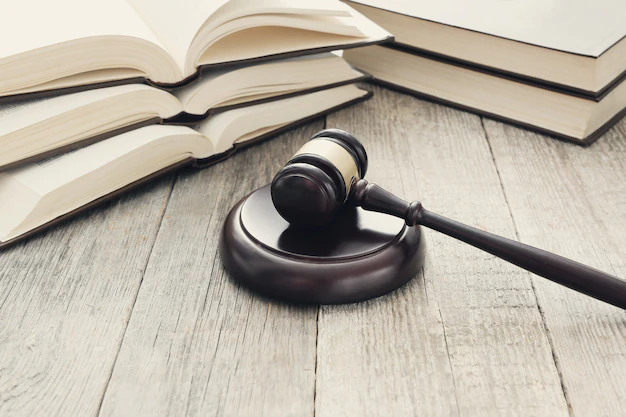When you watch a crime-solving television drama or movie, there is usually a moment in which a cop arrests someone. When a person is arrested, a police officer reads or dictates something to them. Do you have any idea what it is? It’s your Miranda rights at work.
It might be frightening if things like this happen to you and you don’t know what to do or how to respond, or even what rights you can invoke in such situations.
If you are unfamiliar with these terms and what to do if such situations arise, it is best to read the full article to learn what you should and should not do if you are arrested or when and how to invoke your Miranda rights to avoid incriminating yourself.
In such circumstances, it is best to call a San Luis Obispo criminal defense law firm immediately.
What are Miranda Rights?
In the scenario described above, when an arresting officer arrests a suspect, you will usually hear the arresting officer dictating or reading these lines to the suspect: You have the right to remain silent and refuse to answer questions. Anything you say may be used against you in a court of law. You have the right to consult an attorney before speaking to the police and to have an attorney present during questioning now or in the future.
These lines that the arresting officer reads to the suspect are their Miranda rights, and the act of reading them is called Miranda Warning.
The name Miranda came from the Supreme Court case, Miranda v. Arizona, in which the Supreme Court has ruled that when a police officer questions an individual in their custody, the police officers must tell them of their constitutional rights to remain silent and seek the assistance of a lawyer. If they did not inform these rights before, during, or after the police interrogation, then the evidence acquired from that interrogation may be inadmissible in court.
Now the question, what are your Miranda rights?
- You have the right to remain silent and refuse to answer questions. When you are at a police interrogation, in their custody, or being detained, you have the right to remain silent and to refuse to answer some of the questions. This safeguards you from giving statements or testimonies that might be used against you in a court of law, which most probably will incriminate you to a certain crime.
- You have the right to have an attorney present. This gives you the right to have a lawyer by your side when you are being questioned or interrogated by the police officers. It is important for you to insist on this right or privilege by saying that you need to talk to your attorney first before answering any questions. The presence of a lawyer prevents police officials from pressuring or coercing you to give a confession.
- If you cannot afford an attorney, one will be appointed to you. This guarantees every person’s right to legal counsel. If you do not have a lawyer or can not afford one, you will be provided or assigned a lawyer who will help you and explain your rights to you.
Always remember that police officers can not coerce you to answer their questions nor give out a testimony.
How do you invoke your Miranda rights?
It is very important that when things like this happen to you, you need to invoke your rights against self-incrimination (popularly known as the Fifth Amendment). Remaining silent is not enough. It would be best if you asserted it by explicitly saying that you invoke your right against self-incrimination, or you take the fifth that you won’t answer any questions unless you have a lawyer beside you.
Remember that when you answer questions after you have been given a Miranda Warning, the court sees it as waiving your Miranda rights.
When do you invoke your Miranda rights?
Now you know what your Miranda rights are and how to invoke them, it is necessary for you to know when you can invoke them.
Miranda rights apply only to custodial interrogations. So when you are in the custody of the police officers, and they attempt to interrogate you or ask questions, this is the time you have to invoke the fifth amendment and seek legal counsel.
Before they question you, you have to be Mirandized or given a Miranda Warning. If they did not, then there’s a big possibility that your statement will not be admissible to the court.
Take note that the place of interrogation or questioning does not matter, whether you are at the crime scene or at the police station, as long as you are either detained or in their custody. So when a police officer interviews someone at the crime scene as a witness, it is not necessarily that the police officers must give a Miranda warning. However, it would be best if you still were cautious when answering the questions, for it might be used against you or incriminate yourself in the process. So it is essential to ask for help from a lawyer.
The Do’s and Don’t during an Arrest
There are a lot of things that happen during an arrest. Like when an officer puts you in handcuffs. This may shock you, or worse, it might lead you to confess or say something that will incriminate you. It is important to be vigilant in times like this and always assert your right to remain silent and to have a lawyer present.
What to do during an arrest
- You should remain calm and vigilant. In times like this, being calm and observant of the happenings around you may help you in the future. Like when the arresting officer did not follow the correct arresting procedure or even when they try to coerce you, you may use it as your defense during your trial.
- Ask for your arresting officer’s name and badge number and try to remember them. It is important to remember your arresting officer’s names and badge numbers because there might be circumstances where you need to identify your arresting officers.
- You should ask if they have an arrest warrant against you. Typically, an arrest is conducted alongside a warrant of arrest issued by a court. If you are not committing a crime in front of a police officer, you must ask for a warrant of arrest if you are being put into an arrest.
- Ask why you are being arrested. If you are being arrested, you have the right to know what laws you violated or why they are arresting you.
- Place your hand where the police officers can see them to avoid violent encounters. For you to be safe, it is always important to show your hands where the police can see them. This is to ensure that you are not doing a bad thing (like getting a gun) that may require the police officer to use their guns against you.
- Tell them that you will not speak to them unless your lawyer or there is a lawyer present. Asking for a lawyer is one of the fundamental things you should never forget. As lawyers, they are knowledgeable about the intricacies of legal processes, and they can guide you to understand your rights and what to do thoroughly.
- Assert your right against self-incrimination by remaining silent. You are granted the right to remain silent. This right safeguards you from giving statements or confessions that might incriminate yourself to a crime.
What you should not do during an arrest
- Never resist an arrest. Do not run away or resist an arrest even if you are innocent. Such acts may be used against you in court and may hurt your case.
- Do not give any information other than your name and address. It is important for you to remember that you do not need to answer all of their questions unless you have a lawyer at your side, and your legal counsel approves for you to answer the questions.
- Do not engage in physical confrontations with your arresting officers. Being aggressive or physical towards the arresting officer may result in violence. If you want to be safe, just remain calm and do not be aggressive but not passive.
- Do not consent to searches. Never give consent to the arresting officer to search your house or property during an arrest, especially if they do not have any search warrant. This is to avoid any planting of evidence and alike that might incriminate yourself.
Ask one of our criminal defense lawyers to help you!
When incidents like these happen, it is critical to have a lawyer on your side. So what better way to do this than to seek assistance from a group of lawyers with over 20 years of expertise dealing with the most prevalent crimes especially, those who are certified trial-tested.
It is better to be prepared and safe with us than be alone because we at 805 Law Group believe that there is no case too big or too little. So if it happens that you need a defense lawyer from San Luis Obispo, CA, do not hesitate to contact us.



